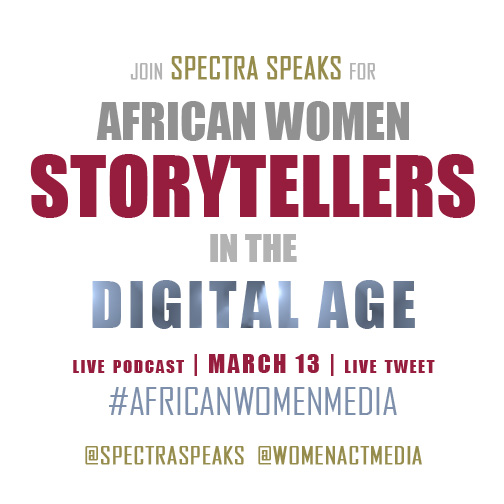I'm on a panel with one of my favourite video bloggers, Jay Smooth of Ill Doctrine! At "The Revolution Will Be Online" we'll be chatting about a topic that speaks to the crux of all my work: the power of media, technology, and online conversations to propel change in the…
-
-
Live Podcast: African Women and Girl Storytellers in the Digital Age
On March 13, as part of the Women, Action, and the Media's annual feminist media festival, I'll be hosting a live podcast about African women using media to subvert mainstream narratives about Africa: "African Women Storytellers in the Digital Age." In true kitchen table conversation style, my guests and I…
-
Advocacy - Africans for Africa - Blog - Media Activism - New Media - Philanthropy - Special Series - Thought Leadership
7 Social Media Ideas That Will Strengthen Digital Activism in Africa
Last week, I had the pleasure of participating in the West African Civil Society Institute (WACSI)‘s Social Media Experts conference in Accra, Ghana. The conference brought together African social media experts, enthusiasts, and activists from across the continent, which got me thinking about ways we can strengthen "digital activism" across…


